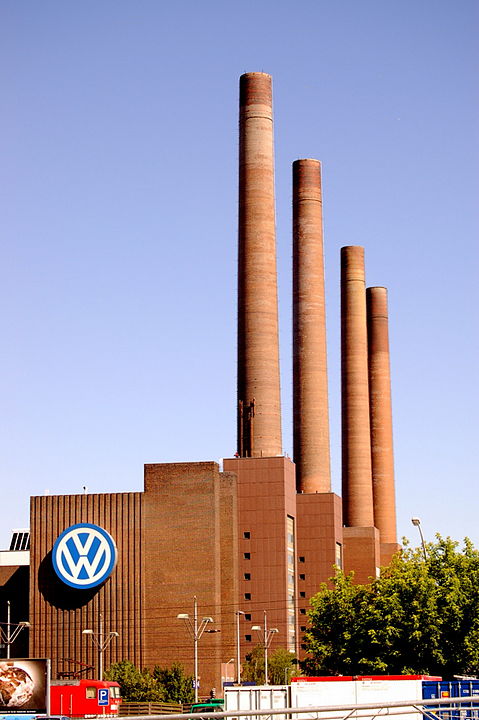
We are the independent Volkswagen Group specialist garage in South Wales… and yet this blog hasn’t done a VW salesy-financey round-up in absolutely ages.
In this post, we’ll put that right with a quick summary of how our favourite automotive giant is doing.
The European background
According to Forbes, European car makers are facing some headwinds this year. With massive global inflation, worker wages have risen, forcing company costs up. But at the same time, cars are being discounted to attract sufficient sales. All this means that although car sales will grow in 2024, car companies won’t be quite so profitable.
As we’ll see later, these challenges are small potatoes compared to the forecast for 2025.
SEAT
As you probably know, SEAT as a distinct car-making brand won’t be around much longer. Production of SEAT cars will stop in 2030, and there won’t be any new models before then.
That may seem weird, considering that last year, the company posted the highest-ever profits in its 73-year history, but the devil is in the details. In the financial statements, Cupra and SEAT’s fortunes get rolled into one, and it’s clear which marque is on the up. Customers can’t get enough of the swisher, sexier Cupra models, with sales up over 50% from the previous year. Meanwhile, sales of the SEAT Leon have cratered this year as consumers mystifyingly turn away from compact cars towards tank-like SUVs.
Skoda
Skoda, one of the world’s oldest car companies, has made a “solid start” to 2024, according to their news briefing. ‘Solid’ is newsroom-speak for ‘OK, but nothing to get excited about’.
So far, the company sold more cars (up 5.2%), but made a wee bit less profit (down 1.3%) compared to the same period last year. That will be down to the European factors mentioned above.
Like David Hasselhoff, Skoda is big in Germany. It’s the Czech company’s biggest market, and they’re doing well there, with sales and market share both up a fair bit from last year. Germans seem to love the electric Enyaq in particular (sales are up over 40% this year). But across all models the mighty Skoda Octavia remains king (sales up 36% in the first quarter). We’re not surprised, it’s a great car.
One more thing – Skoda has started releasing an annual sustainability report along with its financial statement. Even if you’re not especially into green issues, it’s worth a glance to see how industrial companies are trying to clean up their act (and fix their image).
Audi
Audi is the prestige brand with three other premium marques in its stable: Bentley, Lamborghini and Ducati.
How are they doing? Here comes that ‘solid’ word again:
Solid financial figures in Q2 supported by slightly improved supply situation
– Table heading, Audi Quarterly Report, H1 2024
However, in this case, ‘solid’ means deliveries were down 11.2%, and profit was down 5.4%. To us financial laymen, that doesn’t sound great – though they were still 1.5 billion euros in the black.
Audi has had to cope with a strike at its Mexico plant, as well as supply constraints for its engines. The company also cited falling demand for its fully electric vehicles ‘in certain markets’. So much so that apparently it is considering shuttering one of its electric car plants. That’s an interesting one that we’d like to look into more.
The VW Group Overall
Overall, you won’t be surprised to hear that the Volkswagen Group continues to make a lot of cars and rakes in a huge amount of cash.
More precisely, in the first half of 2024, they sold 4.3 million vehicles which brought in 158.8 billion Euros.
To put that revenue in context, it’s bigger than Kuwait’s GDP. In fact, the VW Group’s revenue is bigger than the GDP of about 120 countries (about two-thirds of all those on Wikipedia’s GDP-by-country list).
But operating profits aren’t good enough, according to Chief Financial Officer Arno Antlitz. A return of 10.1 billion euros after six months, which is a 6.3% margin, just won’t cut it. “We will have to make significant cost-cutting efforts in the second half of the year and beyond in order to achieve our goals,” he warned.
And it looks like 2025 might be an even tougher year. According to the Forbes article we cited above, something nasty is due to hit the fan. Next year, Chinese cars really start to flood into Europe and new emission regulations will come into force, challenging all the big European brands.
Still, we’ve got no doubt that VW Group will prevail in the long run – they still have that tradition of fabulous engineering and people-pleasing models.
Psst…If you were paying attention, you’ll see that this time, the Volkswagen brand (as opposed to the group) is missing from this list. We just found it impossible to track down stats that weren’t related to the whole group. If you can find the answers in ten seconds flat, do us a favour and keep it to yourself. Nobody likes a show-off 🙂
The WVS blog covers a wide range of automotive topics, from the contentious to the light-hearted. WVS provides services, repairs and MOTs, delivering a main dealer level of care at affordable prices. To book your vehicle in, or for any enquiries, get in touch.
